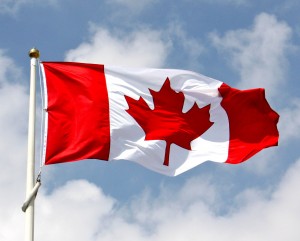Canada Takes Part: Arctic Spatial Data Infrastructure Meets in Anchorage
The Arctic SDI Board, which includes mapping executives from Canada, Kingdom of Denmark, Finland, Iceland, Norway, Russia, Sweden and the United States, recently met in Anchorage, Alaska to further development of a robust Arctic Spatial Data Infrastructure. The Arctic SDI is a cooperation based on a Memorandum of Understanding signed by the eight National Mapping Agencies.
A spatial data infrastructure (SDI) provides tools for data distributors to ensure geospatial data is easier for users to access, validate and combine with other data. Important data sets are produced and distributed by many stakeholders – in the public and private sector – and most of it can be geographically referenced.
“It’s important that scientists, resource managers, decision-makers and citizens can discover, access and use trusted data to conduct research, make informed decisions, and respond to emergencies in a changing Arctic.” said Kevin Gallagher, the USGS Associate Director for Core Science Systems and current Arctic SDI Board Chair. “The Arctic SDI initiative brings together geospatial experts and scientists in a voluntary cooperation between these country’s national mapping agencies in direct support of the priorities of the Arctic Council and other important stakeholders.”
The Arctic SDI cooperation has built a foundation on which important strategic work is being conducted by lead countries through several working groups in alignment with a 5-year Arctic SDI Strategic Plan 2015-2020 adopted last year.
The Arctic SDI Geoportal, launched in 2014, includes a continuously updated, harmonized pan-Arctic basemap using data delivered by the individual countries and national mapping agencies. Together they are working to increase the number of national authoritative datasets available through the Geoportal. The basemap, geoportal and access to data are continually being improved. Additionally, an Open Geospatial Consortium (OGC) Arctic Spatial Data Pilot, sponsored by Natural Resources Canada and the USGS is underway to test interoperability of standards, increase the inventory of available Arctic data, and advance the understanding of best practices for distribution and sharing of data by showcasing the value of a standards based, data rich environment.
In 2009, the Arctic Council Senior Arctic Officials gave unanimous formal support to the Arctic SDI initiative and while the Arctic Council represents its primary stakeholder group, the Arctic SDI is aligned with the global, regional and national geodata context, including:
- The United Nations Committee of Experts on Global Geospatial Information Management (UN-GGIM),
- The Global Earth Observation System of Systems (GEOSS),
- The European Commission’s Infrastructure for Spatial Information in the European Community (INSPIRE)
- The U.S Federal Geographic Data Committee National Spatial Data Infrastructure (NSDI),
- and Canada’s Spatial Data Infrastructure (CGDI).
Additionally, the work adheres to Open Data principles, including facilitation of open and interoperable data based on OGC and ISO standards, specifications, architecture and software.
Arctic SDI Working Groups are continuing communication and outreach with stakeholders, especially the Arctic Council Working Groups, to advance understanding of data sharing and management techniques, and best practices to improve data access and availability. This work also includes development of communication materials, user guides and a manual. Additionally, elevation experts from the national mapping agencies have been cooperating with the National Science Foundation and Polar Geospatial Center to provide data and expert reviews in support of a high quality Pan-Arctic Digital Elevation Model being developed in support of a U.S. Chairmanship Arctic Council Initiative.
Press Release found on https://www.usgs.gov/news/mapping-arctic-promotes-international-agreement





